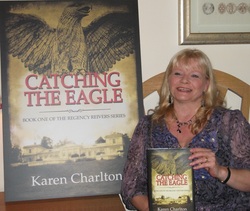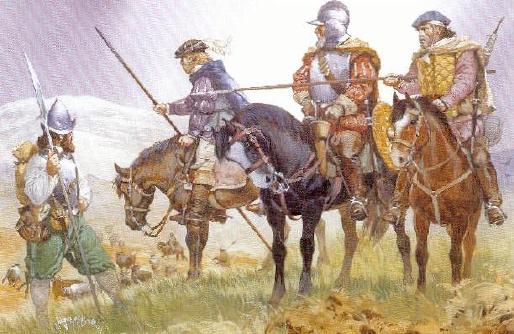'Author Karen uncovers shocking family secret'
This time it is the Morpeth Herald who have featured Catching the Eagle.
This is great news and - we believe - prompted an independent bookseller to contact my publisher for copies of the novel. It is a good article, similar to the one published by the Hexham Courant last Friday. This is hardly surprising because both newspapers used the emailed information and photos taken from my 'press pack' to write the features. All that hard work preparing the press pack last summer has paid off. If anyone is curious about what I used in my press pack, here is a list:
Photo of the book cover
Photo of me
Photo of Kirkley Hall
Press release
Background information
An extract from The Newcastle Courant September 1810
A family tree
The blurb for the novel
A synopsis of the story
Details of both the Teesside and the Northumberland book launches
Although this system obviously works extremely well, the slightly irking thing about it is that the newspapers can just lift the information I have sent them and publish - without telling us.
Thank you to David Walker in Ponteland, cousin of my friend Christine, for alerting us to the fact that the Morpeth Herald had published the above article. (Otherwise we would never have known!)


 RSS Feed
RSS Feed